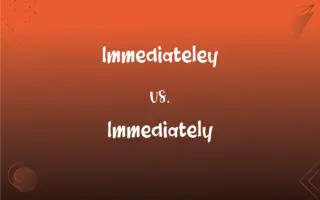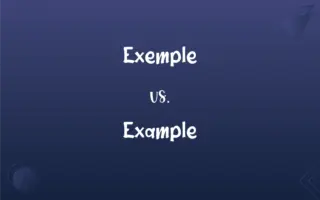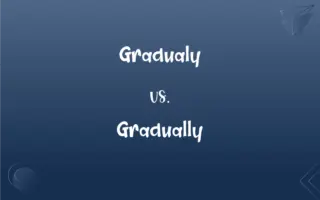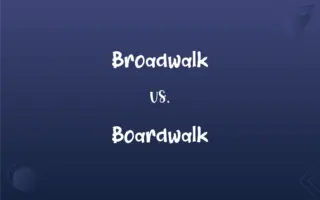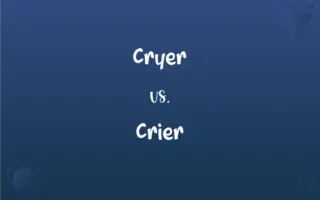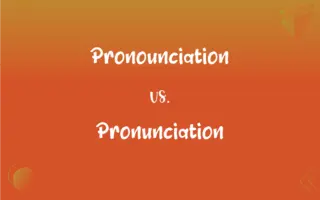Windigo vs. Wendigo: Mastering the Correct Spelling
Edited by Aimie Carlson || By Janet White || Updated on March 12, 2024
"Windigo" is an incorrect spelling, while "Wendigo" is the correct spelling, referring to a mythical, cannibalistic creature from Algonquian folklore.
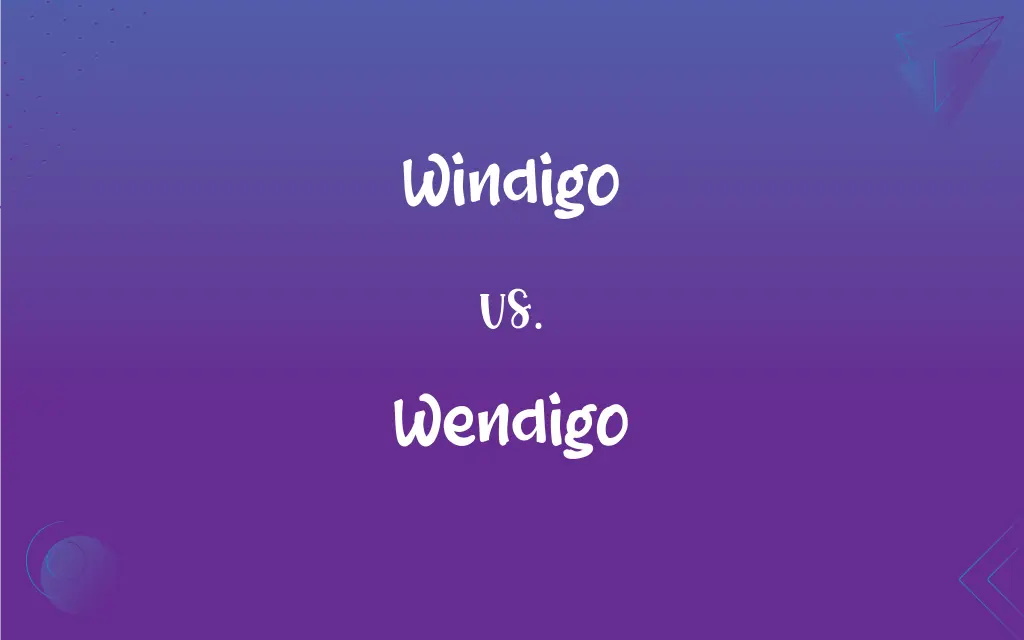
Which is correct: Windigo or Wendigo
How to spell Wendigo?

Windigo is Incorrect

Wendigo is Correct
ADVERTISEMENT
Key Differences
"Wendigo" rhymes with “indigo,” keeping the “e” sound consistent.
Recall “Windy-go” to avoid the mistake of spelling it "Windigo".
“Wendigo” and “Wendy” both start with “Wen”.
Picture a windy ego to reinforce “Wendigo”.
Remember “end” is in the middle: W-"end"-igo.
ADVERTISEMENT
Correct usage of Wendigo
Legends say the windigo comes out during the full moon.
Legends say the wendigo comes out during the full moon.
The windigo is known for its insatiable hunger for human flesh.
The wendigo is known for its insatiable hunger for human flesh.
He thought he saw a windigo in the woods last night.
He thought he saw a wendigo in the woods last night.
The story of the windigo scared the children around the campfire.
The story of the wendigo scared the children around the campfire.
Some believe the windigo was once a human being.
Some believe the wendigo was once a human being.
Wendigo Definitions
A mythical, cannibalistic monster from Algonquian mythology.
The Wendigo is said to roam the northern forests.
A spirit believed to possess humans and make them monstrous.
Legend says people can transform into a Wendigo.
An anthropomorphic creature associated with starvation and cold.
Wendigos appear more frequently in harsh winters.
A symbol of insatiable hunger and greed.
His appetite was like a Wendigo.
A cultural symbol of taboo behavior, especially cannibalism.
Cannibalism was strictly forbidden, likened to becoming a Wendigo.
(mythological creature) A malevolent and violent cannibal spirit found in Anishinaabe, Ojibwe, and Cree mythology, which is said to inhabit the body of a living person and possess him or her to commit murder.
Synonym of splake
Wendigo Sentences
They say that the wendigo wanders the forest during the coldest, darkest nights.
The wendigo is a key figure in the folklore of many Native American tribes.
People used to tell stories of the wendigo to warn against greed and excess.
The chilling howl in the night was attributed to the wendigo by the locals.
To become a wendigo, one must succumb to cannibalism, according to the myths.
Some say that the wendigo possesses supernatural strength and speed.
According to legend, the wendigo grows taller with each person it consumes.
In the deep winter, when food was scarce, the wendigo legend felt especially real.
To protect against the wendigo, some would carry amulets or perform rituals.
The fear of the wendigo kept many from straying too far into the woods alone.
The wendigo is often depicted with antlers, embodying its connection to the wilderness.
A wendigo sighting is considered an ill omen, signaling doom for those who encounter it.
The eerie silence of the forest at night was often attributed to the presence of a wendigo.
Hunters would sometimes invoke the wendigo in rituals to ensure a successful hunt.
The wendigo is sometimes said to be invisible, only seen when it chooses to be.
Elders told tales of the wendigo to teach the importance of community and sharing.
The wendigo myth has inspired numerous books, movies, and video games.
Stories of the wendigo served as cautionary tales against the dangers of isolation.
In some stories, the only way to kill a wendigo is by melting its icy heart.
Some believe that the wendigo calls out to lost travelers, luring them into its trap.
Legends of the wendigo have been passed down for generations, becoming a part of cultural heritage.
FAQs
Why is it called Wendigo?
It's derived from the Algonquian word "wiindigoo."
What is the root word of Wendigo?
Algonquian "wiindigoo."
What is the singular form of Wendigo?
Wendigo.
Which conjunction is used with Wendigo?
No specific conjunction is dedicated to "Wendigo."
What is the pronunciation of Wendigo?
/ˈwɛndɪɡoʊ/
Is Wendigo a negative or positive word?
Generally negative due to associated fearsome myths.
What is the plural form of Wendigo?
Wendigos.
Which vowel is used before Wendigo?
“A” as in “a Wendigo.”
Which article is used with Wendigo?
“A” or “the.”
Is Wendigo a noun or adjective?
Noun.
What is the verb form of Wendigo?
There is no standard verb form.
Is Wendigo an adverb?
No.
Which preposition is used with Wendigo?
Various prepositions can be used. Example: "stories about the Wendigo."
Is Wendigo an abstract noun?
No, it's a concrete noun when referring to the creature.
Is Wendigo a vowel or consonant?
Wendigo is a word, not a vowel or consonant.
Is the word Wendigo imperative?
No.
How many syllables are in Wendigo?
Three.
What is a stressed syllable in Wendigo?
The first syllable, "Wen."
What part of speech is Wendigo?
Noun.
Which determiner is used with Wendigo?
“The” is commonly used.
What is the first form of Wendigo?
Wendigo does not have verb forms.
Is Wendigo a collective noun?
No.
How do we divide Wendigo into syllables?
Wen-di-go.
What is the third form of Wendigo?
N/A.
How is Wendigo used in a sentence?
"The folklore around the Wendigo often involves themes of greed and cannibalism."
Is Wendigo a countable noun?
Yes.
Is the Wendigo term a metaphor?
It can be metaphorically used to symbolize greed or insatiability.
What is another term for Wendigo?
Windigo is sometimes used, albeit less correctly.
What is the opposite of Wendigo?
There's no direct antonym.
What is the second form of Wendigo?
N/A.
About Author
Written by
Janet WhiteJanet White has been an esteemed writer and blogger for Difference Wiki. Holding a Master's degree in Science and Medical Journalism from the prestigious Boston University, she has consistently demonstrated her expertise and passion for her field. When she's not immersed in her work, Janet relishes her time exercising, delving into a good book, and cherishing moments with friends and family.
Edited by
Aimie CarlsonAimie Carlson, holding a master's degree in English literature, is a fervent English language enthusiast. She lends her writing talents to Difference Wiki, a prominent website that specializes in comparisons, offering readers insightful analyses that both captivate and inform.

